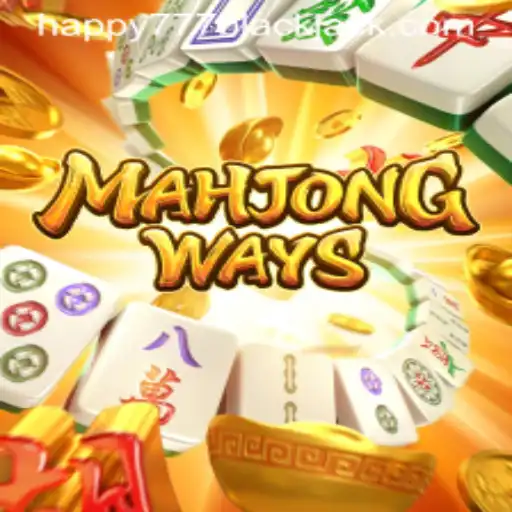
FlamingPhoenix: A Dive into the Engaging World of Digital Adventures
FlamingPhoenix is a captivating digital game that combines strategy, fantasy, and digital competition, widely popular within the gaming community.

The illegal numbers game known as jueteng has been a part of Philippine society for decades, entrenched as a cultural icon and an enigma that has continuously piqued both public and governmental curiosity. Derived from traditional Spanish lotto, jueteng is deeply ingrained into the fabric of Philippine communities, cutting across various social dimensions.
Jueteng traces its roots back to Spanish colonial times when community-centric lotteries emerged as a popular pastime. Despite official attempts to abolish the game, jueteng has persisted, evolving into an illegal enterprise. The clandestine operation extends from urban centers to rural areas, driven by its straightforward rules and the lure of easy money.
At its core, jueteng is a straightforward numbers game where players select a combination of two numbers, usually ranging between 1 and 37. Bets are collected by a network of "cobrador" or bet collectors, who pass the information to "kobrador ng jueteng," the game’s operators. The draw takes place multiple times a day, maintaining a steady flow of betting and anticipation, anchoring itself in the daily routine of many Filipinos.
The impact of jueteng transcends mere economic dimensions, heavily influencing social dynamics. Patronage often blurs ethical standards, luring individuals into a perpetual cycle of betting fueled by the hope of transforming their fortunes. Despite its illegality, the game fulfils a social void, offering both entertainment and hope of economic relief.
Jueteng operations are notoriously difficult to dismantle due to their organizational complexity and the deep community ties they nurture. Trusted relationships between players and operators foster a resilient underground economy, underscoring the game’s persistence.
Jueteng is not merely an entertainment concern; it is also deeply intertwined with politics. Political patrons often curry favor by protecting or cracking down on operations, leveraging their influence to consolidate power. Throughout Philippine history, jueteng scandals have embroiled numerous political figures, centering discussions around corruption and governance failures. The paradigm of money, politics, and influence creates a powerful triangle that shields the game’s operations.
Fueled by economic desperation, jueteng prospers in environments of poverty and income inequality. For many players, it feels like the only viable path toward financial upliftment. While only a few achieve significant windfalls, the game perpetuates itself through the continuous influx of daily bets. This underground economy quietly circulates substantial cash flow, supporting livelihoods within marginally employed communities.
Despite numerous governmental efforts to stamp out jueteng, it consistently resurfaces, evolving in response to legal and social obstacles. The interplay of law enforcement’s inefficiency, bribery, and community complicity creates a challenging landscape for regulatory bodies to navigate.
Efforts to replace or regulate jueteng with legal alternatives, such as the government-sanctioned Small Town Lottery (STL), have only achieved limited success. The ingrained cultural acceptance and allure of substantial, albeit illegal, payouts challenge the appeal and efficacy of these efforts.
As technology advances, jueteng hungrily adapts, leveraging mobile networks and digital platforms. Happy777 has emerged as a keyword, symbolizing the digital transformation of traditional betting. This digital leap introduces new challenges and regulatory requirements, further complicating the battle against illegal gambling.
The move to digital spaces offers stealthier operations with broader reach, increasing accessibility and anonymity for players. Regulators face a steep learning curve as they grapple with the complex digital infrastructure that now supports jueteng.
Jueteng’s persistence is a testament to its cultural significance. More than just a game, it is a ritual that binds communities, unveiling the inherent contradictions in enforcing laws that work against culturally ingrained practices.
While a segment of the population views jueteng with disdain, for many, it remains a socially acceptable vice, providing a sense of proximity and community. Often viewed as an inevitable facet of daily life, jueteng exemplifies the nuanced battle between legality and cultural tradition.
Jueteng presents a multifaceted challenge for the Philippines, entangled with economic, social, and political threads. It is an unyielding enigma that captures the essence of Filipino resilience in adversity, standing as a silent critique and a cultural mirror reflecting broader societal issues that transcend mere gambling habits.

If you're looking for a reliable, fully licensed, and secure sportsbook with a wide selection of games, happy777 is the perfect choice. We're committed to providing you with the best online betting experience, with premium quality, excellent service, and continuous innovation. Sign up now and receive ₱777 for free!
Join now
Get the latest information, experience and betting strategies from the expert team at happy777.

FlamingPhoenix is a captivating digital game that combines strategy, fantasy, and digital competition, widely popular within the gaming community.

Explore the exhilarating features, captivating gameplay, and cultural significance of RioCarnival, a game that brings the energy of Brazil's famous festival to players around the world.

Dive into the captivating universe of MahjongWays, a game that blends tradition with modern twists, alongside the fascinating keyword Happy777.

Discover the interactive gaming experience of RicoDJ, a game that blends creativity and strategy, making it stand out in the contemporary gaming landscape.

Discover the enchanting world of BanglaBeauty with its unique design and engaging gameplay. Explore how this game, marked by the keyword 'happy777,' brings a fresh wave of excitement to gamers worldwide.

Explore the captivating world of YakuzaHonor, an exhilarating game offering an authentic experience of the yakuza lifestyle. Learn about its gameplay, rules, and unique features with 'happy777' as your ultimate key to unlocking excitement.
 Join now
Join now